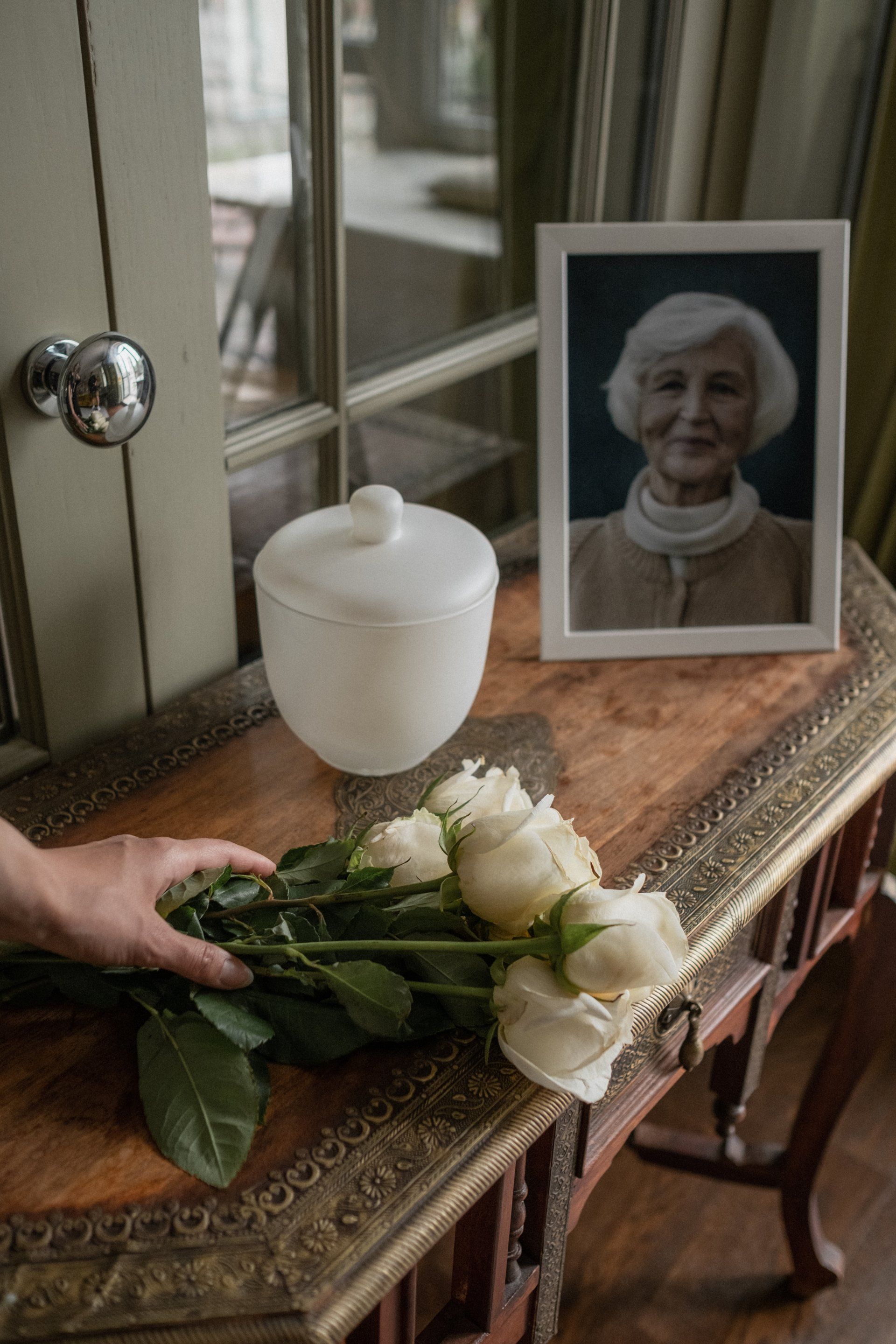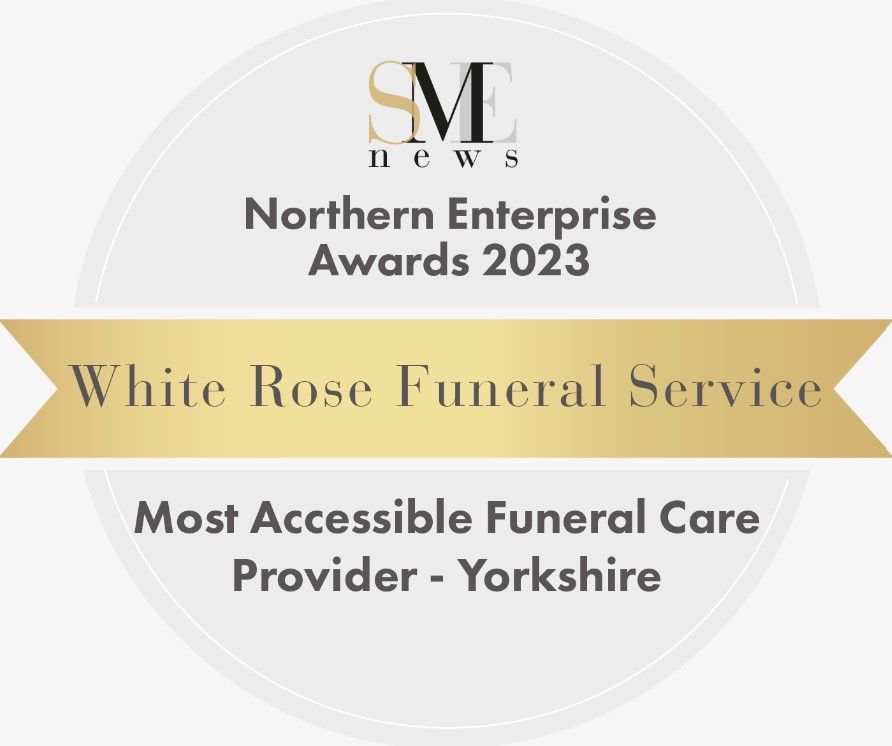Call us 24/7 on the following numbers: Burley in Wharfedale & Ilkley:
01943 969 556, Leeds:
0113 892 1078, Barnsley:
01226 888178
How To Write A Eulogy
Writing a personal and compassionate goodbye...
Giving a eulogy may be one of the toughest and difficult experiences of your life, expressing your love and admiration for the departed while also having to handle the weight of that final goodbye and your own grieving in the process. It is a herculean effort and one that if you have accomplished, you should feel incredibly proud.
Not every funeral will have a eulogy as understandably many prefer to simply give those honours over to the more experienced funeral officiant who will handle the duty of putting together a fitting tribute with stories and little tidbits they receive during their talks with the loved ones and family of the deceased.
However, there may be a time when you are asked to give a eulogy for your loved one. As mentioned, this is a job with an incredible amount of pressure behind it but it is also an opportunity to say goodbye in your own words and offer comfort and a chance for remembrance to those closest to you. Below are a list of items that will help to make this speech as easy as possible.
1. Decide on the Tone
As with most funerals today, a great deal of the ceremony is decided by the tone. While traditional funerals were sombre affairs, many modern services take an opportunity to remember the departed in a more relaxed manner, celebrating their life. The tone of your eulogy should aim to match what surrounds it; the speech should be respectful, but it doesn’t always have to be completely sombre. Depending on the circumstances surrounding the person’s death, you may feel that you can write a lighter eulogy or include some humour. Ideally, your speech should be made to align with the deceased and be a respectful representation of their life and your relationship.
2. Introduce Yourself
It is unlikely you know everyone at the funeral so some people attending the funeral may not know you, so it’s wise to give some context of your relationship with the deceased. Explain how you were related or how you met them. You should also thank the audience for attending the service and, if not a member of the family, offer your condolences.
3. Give Key Points About the Deceased
Once you have given the introduction, you can go on to talk about the deceased but it can often be difficult to know what to discuss. The key is to not overthink it or feel that you need to cover everything. Cover the key things and focus on a few key details, particularly ones that left a strong impression. This might include mentioning these below but please don’t view it as a complete checklist, simply talk about what you wish :
Major events from their life- Their relationships with their family and friends
- Their achievements (professional and otherwise)
- The things and ideas they cared about most
If you feel you need to mention negative things in the person’s life, such as battles with cancer or dementia, be tactful. Talk about their difficulties with compassion, and don’t say anything that would shock, offend or confuse the audience. Tackle things with grace and if you need to mention something, it should be well-known as to not offend or upset those in attendance.
5. Close the Eulogy
To end the eulogy, offer some words of comfort and say goodbye to the deceased. You may wish to finish on a quotation – either something the deceased used to say or a quote that is relevant to their life though, don't feel the need to force it. Keep it natural and representative of the deceased. Ending on a simple message of goodbye can be effective and particularly profound.
6. Get the Timing Right
Aim to write a eulogy that is between three and five minutes long. You want it to be long enough that you can go into detail about the deceased, but you want to avoid going into too much detail. A longer speech will also be more difficult for you personally and keeping it brief will often be somewhat of a comfort. If you are unsure how long to make it, ask the person organising the service how much time you will have available to speak.
7. Ask for Feedback
Once you have written a first draft of the eulogy, it may be useful to get feedback from family and friends who knew the deceased. You can then edit it as necessary and practise reading it out loud. It’ll also help you spot key details you may have missed and relieve some of that pressure and stress. You are not alone and you should never feel like that throughout the entire grieving process.
8. If you aren’t comfortable with it, say no
Funerals are difficult and people react to grief and remembrance in different and completely natural ways. Even if you are a typically extroverted and friendly person, you may find yourself unable to talk about the departed and find yourself unfitting for such a position. This is totally normal and understandable, simply excuse yourself in a respectful manner and don’t feel the need to stress or agganise over a eulogy when the funeral will be difficult enough.
Funerals are an incredibly personal and difficult time but they are also a chance to remember and honour a loved one as well as share stories with those closest to you. They are a chance to say goodbye but remember to embrace those around you and listen to their input. Remember the loved one at all times and what they would want but don’t put too much pressure on yourself. If the weight is too much, express this with the funeral director and your close family as they’ll be able to offer support but also remember that you can step back at any time. Sometimes the pressure of saying goodbye in such a grand way is too much and this is natural and understandable.
Quick Links
Contact Info
Call us 24/7 on the following numbers:
Burley in Wharfedale & Ilkley: 01943 969 556
Leeds: 0113 892 1078
Barnsley: 01226 888178
Find Us
Barnsley:
The Old Police Station, 7 Blacker Road,
Mapplewell, Barnsley,
South Yorkshire, S75 6GW
Burley in Wharfdale:
85 Main Street,
Burley in Wharfdale,
LS29 7BU
All Rights Reserved | White Rose Funerals | Privacy Policy
Website Designed by Up2speed Marketing Limited
Call us 24/7 on the following numbers: Burley in Wharfedale & Ilkley: 01943 969 556, Leeds: 0113 892 1078, Barnsley: 01226 888178













